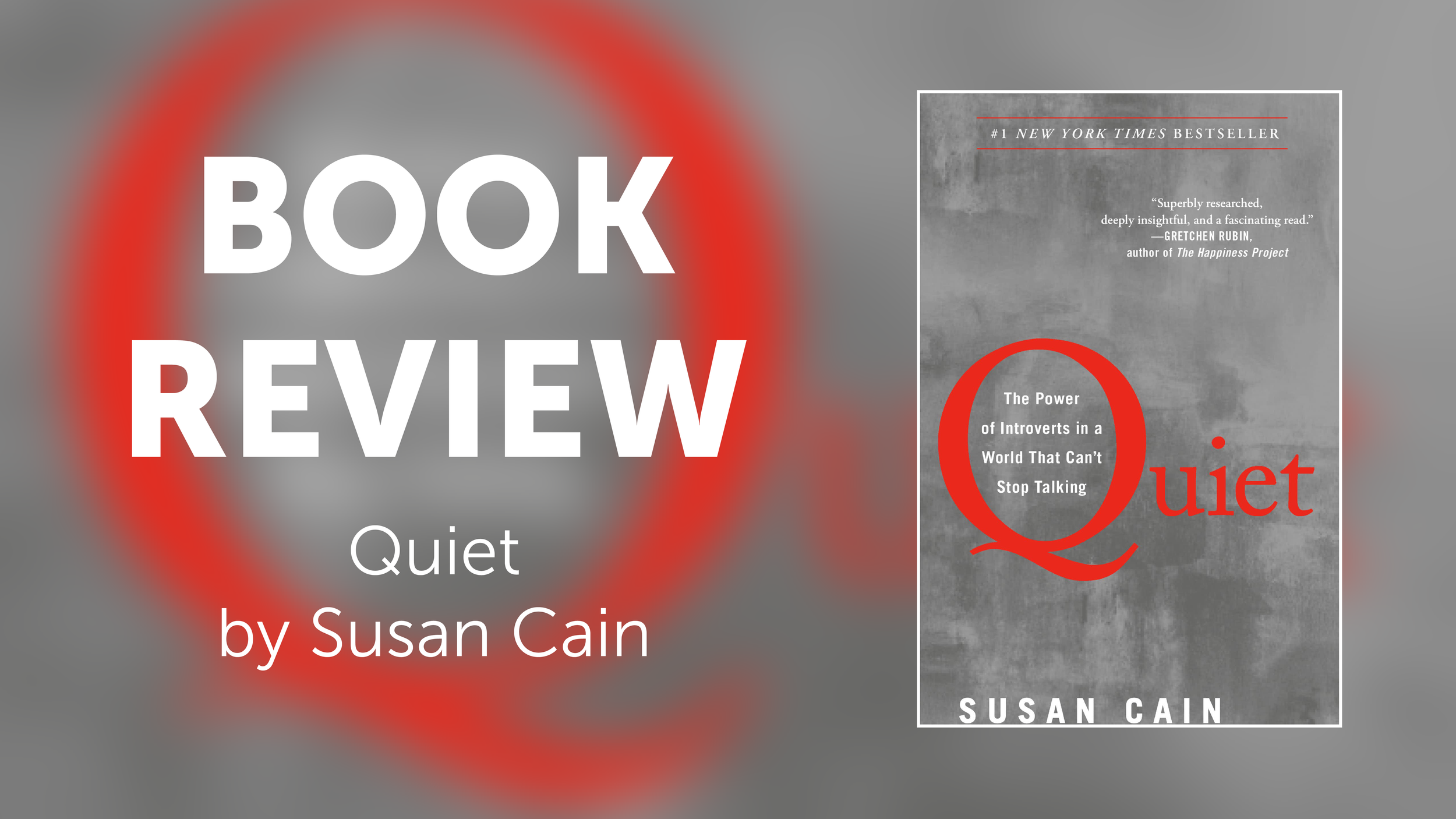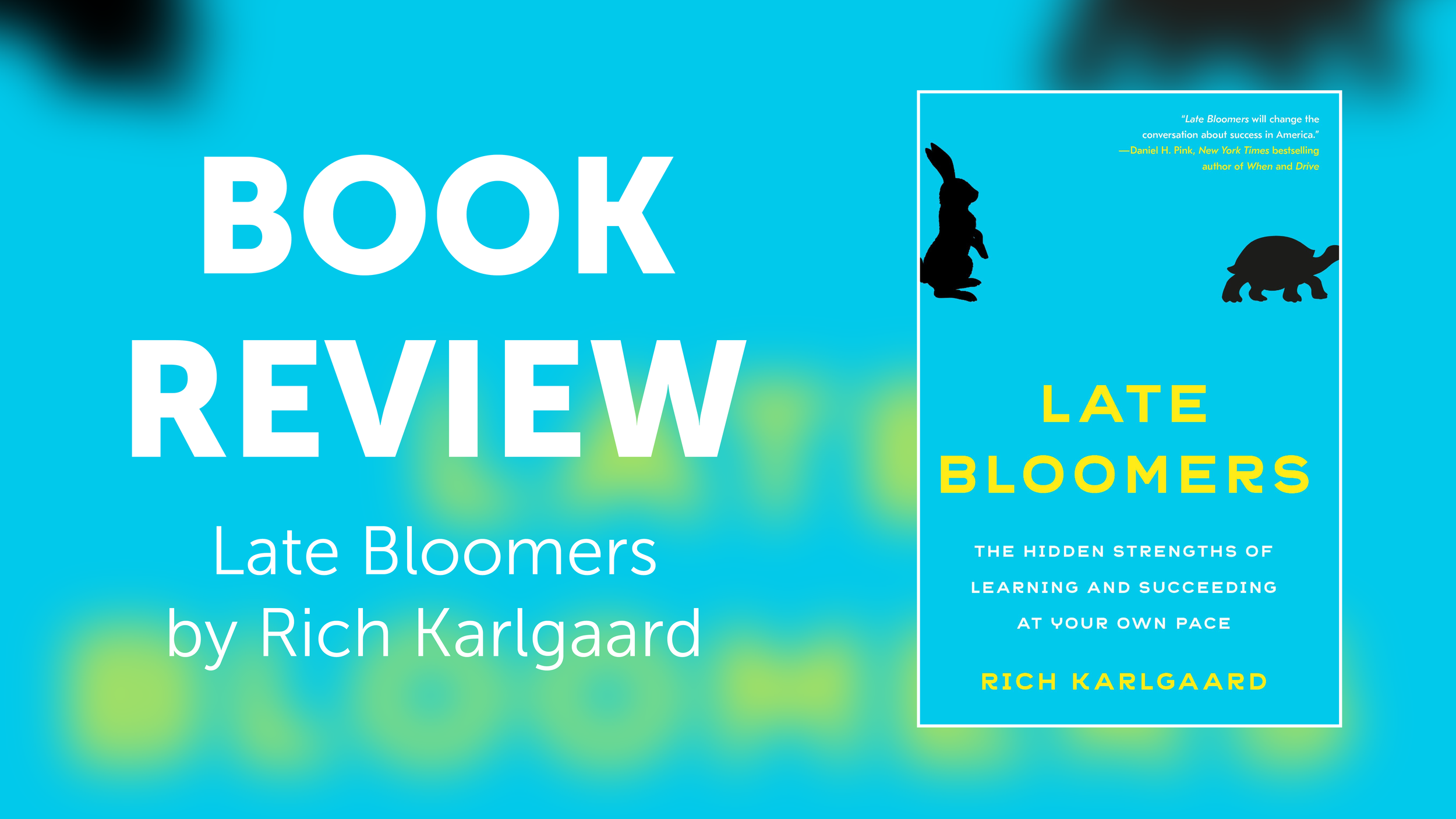For a book titled Quiet: The Power of Introverts in a World That Can't Stop Talking, to say I was interested in taking a read was an understatement. I have always been a self-professed introvert yet over the past ten years or so this notion has been challenged by others. People are shocked when I tell them this. I’ve learned that introversion and extroversion are a spectrum, and I think I am certainly somewhere in the middle. With the more modern definition that says that it all depends where your energy comes from, my energy does not come from social interactions. Susan Cain’s Quiet touches upon a lot of topics that expand on my introversion and I wanted to share some of those gems.
Many introverts are also highly sensitive, which sounds poetic, but is actually a technical term in psychology. If you are a sensitive sort, then you are more apt than the average person to feel pleasantly overwhelmed by Beethoven’s Moonlight Sonata or a well-turned phrase or an act of extraordinary kindness. You may be quicker than others to feel sickened by violence and ugliness, and you likely have a very strong conscience. When you were a child you were probably called shy and to this day feel nervous when you are being evaluated, for example when giving a speech or on a first date.
So right out of the gate, this spoke to me. I think pleasant overwhelmedness is an understatement related to my experiences with music. There’s rarely a better feeling for me than discovering a new song and even better yet, sharing it with someone else.
Cain then talks about how studies have shown that introverts are more likely to well, be extroverted, online. They are more likely to express intimate facts about themselves, blog to millions, yet have trouble introducing themselves to strangers. This definitely tracks. Some of the strongest social networks I’ve formed were back in the Xbox 360 / Halo 3 days and those were completely online. Also, this blog and my YouTube channel certainly mask my introversion.
On page 81 she talks about the idea of Deliberate Practice, identifying a task or knowledge that is out of reach, and working on the task that is most challenging to you personally. The motivation has to come from within. This takes me back to the organic chemistry days with certain concepts that were getting the better of me. I’d lock myself in a room and just say, “I’m not leaving until I have understood, mastered, and can teach this concept.” That’s deliberate practice. And what Cain says in Quiet is that deliberate practice is best completed alone. And it makes sense when you think about it; you need intense concentration and others can be distracting. “If you want to improve what you’re doing, you have to be the one who generates the move.” She talks about Steve Wozniak as an example; he was deliberately practicing engineering alone since he was a kid. The book also mentions that a predictor for expert performers was “serious study alone” and found in chess grandmasters, athletes, and college students: “College students who tend to study alone learn more over time than those who work in groups.” How very depressing.
Later, Cain talks about open-plan offices… and rakes the concept over the coals. “Open-plan offices, at one point thought to be the next generation of the modern office space, have been shown to reduce productivity, impair memory, increase staff turnover, make people sick, hostile, unmotivated and insecure… increase blood pressure and stress, and it just goes on from there.” Yowza. “Top performers work for companies that give them privacy, personal space, control over their environments, and freedom from interruption.” And there’s more: “Open-plan workers… have fewer personal and confidential conversations with colleagues. They’re often subject to loud and uncontrollable noise, which raises heart rates; releases cortisol (hey, I just wrote a blog about cortisol), the body’s fight-or-flight “stress” hormone; and makes people socially distant, quick to anger, aggressive, and slow to help others.” I mean, if that doesn’t describe an emergency room’s nurse’s station, I don’t know what does.
Cain then talks about how population density is correlated with innovation. She talks about how she was much more productive in a crowded coffee shop vs. at home. She was still able to deliberately practice, just amidst a buzzing coffee shop. She could still control her environment by coming and going as she pleased. It was all about the mere presence of other people. I have personal experience with this. In one of my past jobs, I was so much more productive in the company of others. And just a single other person is all I needed nearby. But once I was working in a space by myself, my productivity plummeted. So I think studying and deliberate practice is different than the relatively low stakes operations of an office job; there’s almost a reverse effect there. So I think it’s about working around someone, not with them. I also worked twice in the lobby area of an office, and found that I was more productive there than in my own private office. A lot of nuance here! The conversation about the workplace continues:
Some companies are starting to understand the value of silence and solitude, and are creating "flexible" open plans that offer a mix of solo workspaces, quiet zones, casual meeting areas, cafés, reading room, computer hubs, and even "streets" where people can chat casually with each other without interrupting others' workflow. At Pixar Animation Studios, the sixteen-acre campus is built around a football-field-sized atrium housing mailboxes, a cafeteria, and even bathrooms. The idea is to encourage as many casual, chance encounters as possible. At the same time, employees are encouraged to make their individual offices, cubicles, desks, and work areas their own and to decorate them as they wish.
If you don’t know, I’m already obsessed with the Pixar workplace, so I loved everything about this. What’s more, when I first walked into the main building of the PA program I plan on attending next year, I was instantly reminded of the atrium on the Pixar campus; it had an open atrium in the center of the building, and even had a café, just like Café Luxo!
Cain then goes on to talk about finding your sweet spot, your place of optimal stimulation. Her example is is lying contently in a hammock reading a great novel; wow does that sound nice. Then she talks about, after a while, being underestimated so you seek out a friend for brunch. I think I’m in my sweet spot right now. I just had some family over so I feel overstimulated. I’m now in my quiet basement, with my smart lights on, in the absolute quiet and feel at peace enough to finish this book review. What’s interesting, though, is that I rarely find a time where I am seeking out additional stimulation; I’ve always been okay with the peace and quiet.
Popularized by psychologist Mihaly Csikszentmihalyi, the state of “flow” is the optimal state in which you feel totally engaged in an activity. Hours can pass without you noticing. “The key to flow is to pursue an activity for its own sake, not for the rewards it brings.” Probably the most resonant (no pun intended) of all periods of flow for me has to be in authoring a 400-page study guide for organic chemistry, just for the sake of doing it. I don’t think I’ve ever been more devoted to a project, just for the sake of the project, than that. I think that shows that I love both writing and teaching, but really just problem solving and understanding a complex topic to then put it into normal language, is the driving force there.
On page 200, Cain talks about restraint and quotes Gandhi:
I have naturally formed the habit of restraining my thoughts. A thoughtless word hardly ever escaped my tongue or pen. Experience has taught me that silence is part of the spiritual discipline of a votary of truth. We find so many people impatient to talk. All this talking can hardly be said to be of any benefit to the world. It is so much waste of time. My shyness has been in reality my shield and buckler. It has allowed me to grow. It has helped me in my discernment of truth.
There’s also a chapter here about comparing Easterners and Westerners (in the world) and the education gaps in science and math. They key, it appears, is what’s called “quiet persistence.” Westerners give up much more quickly than Easterners. We are less patient. It’s all about just throwing your whole self at a concept until you come out the other side with it fully mastered.
Later on page 209, Cain talks about Free Trait Theory, created by professor Brian Little. The idea here is that we do indeed have fixed traits that we are born with, like introversion, but we also have these other free traits. We can act out of character and act like extroverts for “the sake of work they consider important, people they love, or anything they value highly.” I think this explains how I was able to work as a student leader in college, or tutor a group of students in organic chemistry. I really care about that stuff. This is why I can lecture with such passion in the YouTube videos I create explaining organic chemistry topics; it’s Free Trait Theory!
On 233 Cain talks about the myth that venting sooths anger. It doesn’t; it fuels it. So what do you do when you want to vent? Take a breath. Take a break. Then ask yourself if it’s really worth getting so upset. If the answer is is, then tackle the problem as a conversation and not an attack.
The last section I quoted from my original notes is as follows:
Spend your free time the way you like, not the way you think you’re supposed to. Stay home on New Year’s Eve if that’s what makes you happy. Skip the committee meeting. Cross the street to avoid making aimless chit chat with random acquaintances. Read. Cook. Run. Write a story. Make a deal with yourself that you’ll attend a set number of social events in exchange for not feeling guilty when you beg off.
I LOVE this. Had it not been for the tradeoff at the end, it would be a perfect quote. But, I suppose, you can’t completely cut yourself off from the entire world. But normalizing everything else, like staying home on New Year’s Eve; I love that notion. Do what makes you happy, but be honest with yourself, you know? If you want to achieve specific social goals, then set out to do that.


